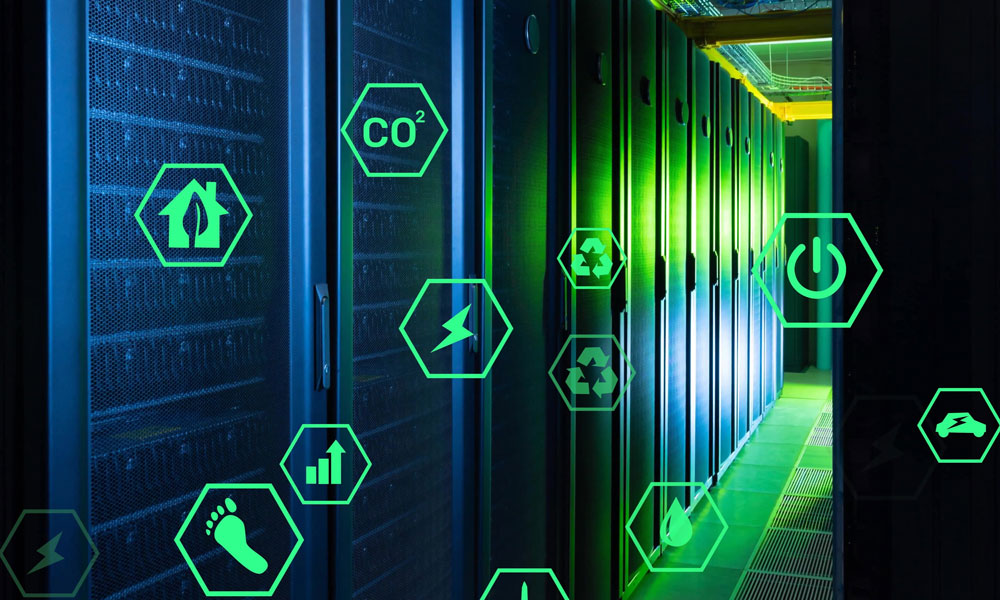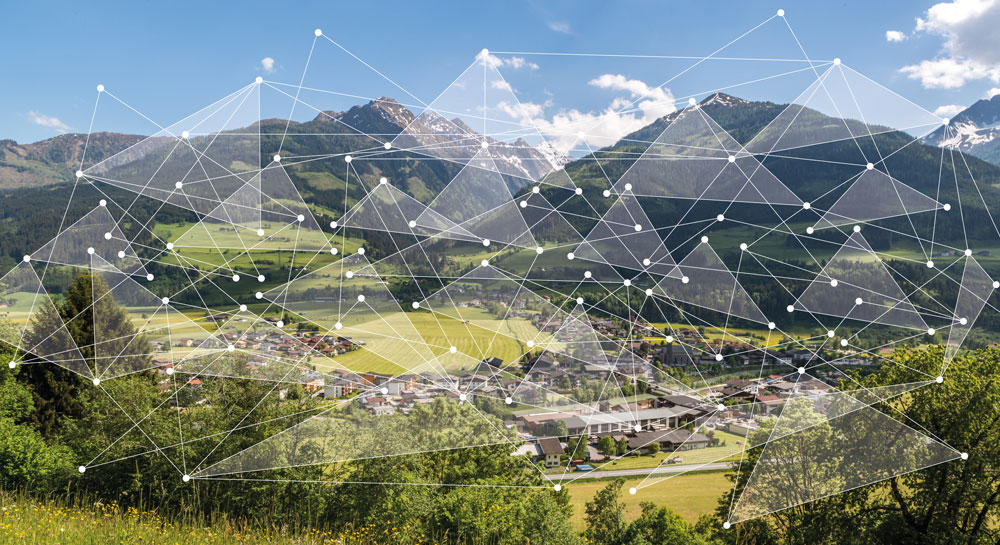
Sustainable data centers: How AI can be up to 90 percent more energy efficient
Artificial intelligence is to be turned from an energy guzzler into an energy saver. A German-Austrian research team wants to make AI up to 90 percent more energy efficient. To improve AI’s environmental footprint, data centers, language models, and visual models are being rethought.
Data centers consume a lot of energy. According to the German digital association Bitkom, their power consumption in Germany has more than doubled over the past decade. And the trend is rising sharply as digital transformation gains momentum.
AI as energy guzzler
Storing data, processing it, sending it back and forth, and retrieving it all requires electricity. Artificial intelligence in particular is a power guzzler. Teaching AI models with masses of data, training and operating them, and using them to generate text and images consumes many terawatt hours worldwide. More and more data centers have to grow bigger and bigger, require more and more electricity, more and more cooling and thus emit more and more CO₂.
Research aims to make AI more energy efficient
However, artificial intelligence can become much more energy efficient. With the right methods, the data centers of the future can be made more sustainable. Researchers in Germany and Austria are developing leaner, more demand-driven AI models. Smaller and more efficient models would also make it easier for small and medium-sized businesses and enterprises to access powerful AI models, since smaller AI models do not require a large infrastructure.
Researchers at the participating research institutions are working on various methods to ensure that these leaner and more energy-efficient models perform as well as today’s chatbots and visual AI models:
- Knowledge Distillation: Knowledge is condensed using knowledge distillation: Small, focused, and economical student models are extracted from large teacher models. They concentrate on the knowledge required for a task area; non-essential parameters are not processed at all. This reduction to the essentials can make data models up to 90 percent leaner.
- Neural Architecture Search: “Neural architecture search is used to optimize visual AI models in particular. Neural networks mimic the human brain, but are currently the result of laborious manual work. Instead of manually designing the composition of neural networks, the AI should automatically find the best architecture.
- Placement in the edge-cloud continuum: It is currently common practice to collect data at the outer edges of the system (edge) and process it in centralized, high-capacity data centers (cloud). However, this is not necessarily the most energy efficient approach. Salzburg Research is developing a solution to analyze, evaluate and recommend an optimized placement of services and applications in the edge-cloud continuum.
From Lab to Field: Hands-On Scrap Sorting Trial
The project team is working with Stahl Holding Saar to test the optimized AI models in practice. The task is to automatically sort steel scrap. Only certain types of scrap are suitable for high-quality steels. Until now, however, the AI model was huge and consumed a lot of energy. As a result of the ESCADE research project, a small, tailor-made “AI brain” will be able to do this more efficiently, effectively and energy-savingly.
Recommendations for Decision Makers
The partners are also developing a blueprint and recommendations for sustainable data centers and energy-efficient AI. Until now, it has been difficult for decision makers to estimate how much energy they will consume for which models. Salzburg Research is developing a tool for automated measurement, analysis and visualization of sustainability metrics. The goal is to enable reliable predictions of the exact energy consumption and associated costs of AI models. In this way, inefficient processes can be identified and countermeasures taken, such as scheduling large computing capacities when electricity prices are low.
Presentation of research results at Hannover Messe
The researchers will be presenting their results from the ESCADE research project at the stand of the Federal Ministry for Economic Affairs and Climate Protection at the Hannover Messe:
Hannover Messe, March 31 to April 4, 2025
Stand of the Federal Ministry for Economic Affairs and Climate Protection (Hall 2 Stand A18)
The ESCADE research project “Energy-Efficient Large-Scale Artificial Intelligence for Sustainable Data Centers” is being funded by the German Federal Ministry for Economic Affairs and Climate Action (BMWK) and the Austrian Federal Ministry of Climate Action, Environment, Energy, Mobility, Innovation and Technology (BMK) with around five million euros over a period of three years. Project partners are: German Research Center for Artificial Intelligence (DFKI), NT Neue Technologie AG, Stahl-Holding-Saar GmbH & Co. KGaA, SEITEC GmbH, Dresden University of Technology, Bielefeld University and Salzburg Research as the Austrian partner.
https://escade-project.de







